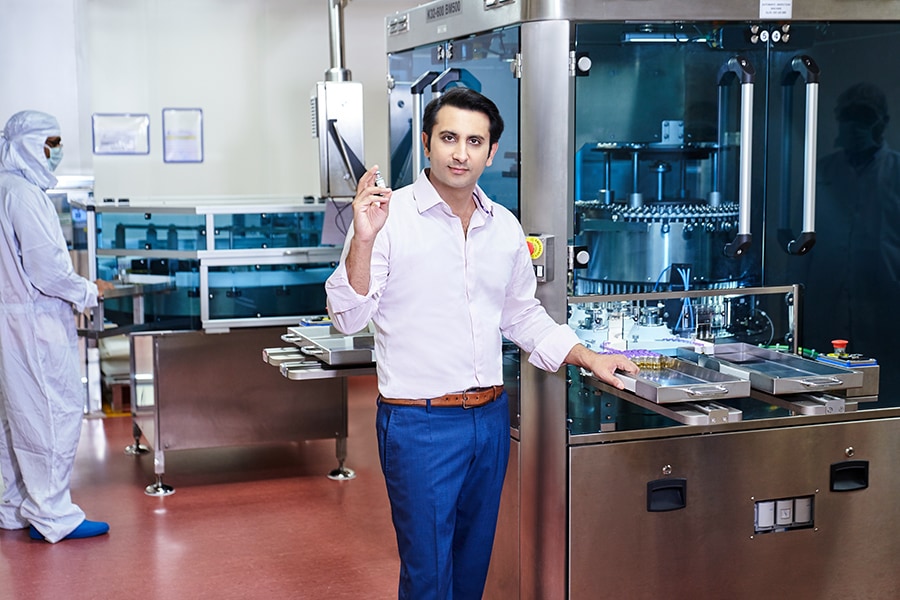
Can Adar Poonawalla tide over the setback in the Covid-19 vaccine race?
As a volunteer developed an unexplained illness, AstraZeneca, whose coronavirus vaccine Poonawalla's Serum Institute is manufacturing in India, announced a pause in clinical trials
 Image: Avinash Gowariker
Image: Avinash Gowariker
UPDATE: Adar Poonawalla has to pause his big gamble with the world’s most promising Covid-19 vaccine. On Thursday evening, Serum Institute decided to pause its India trials.
“We are reviewing the situation and pausing India trials till AstraZeneca restarts the trials,” Serum Institute said in a statement. AstraZeneca had paused its clinical trials after a volunteer developed an unexplained illness.
Indian billionaire Adar Poonawalla’s big gamble with a Covid-19 vaccine, developed by the Oxford University and British pharmaceutical giant, AstraZeneca, seems to have run into a serious roadblock.
On Wednesday, AstraZeneca, mandated with developing, manufacturing and distributing the vaccine that was earlier developed by the Jenner Institute and Oxford Vaccine Group, said that that it had voluntarily paused clinical trials of its coronavirus vaccine after a volunteer developed an unexplained illness.
AstraZeneca was in the midst of its third phase of the trial. It was brought in by the UK government for its expertise in late-stage drug trials, financial resources and global distribution. Poonawalla’s Serum Institute had tied up with AstraZeneca in June this year to manufacture the vaccine in India, of which 50 percent will be kept for sale in India, while the remaining will go to low- and middle-income countries.








